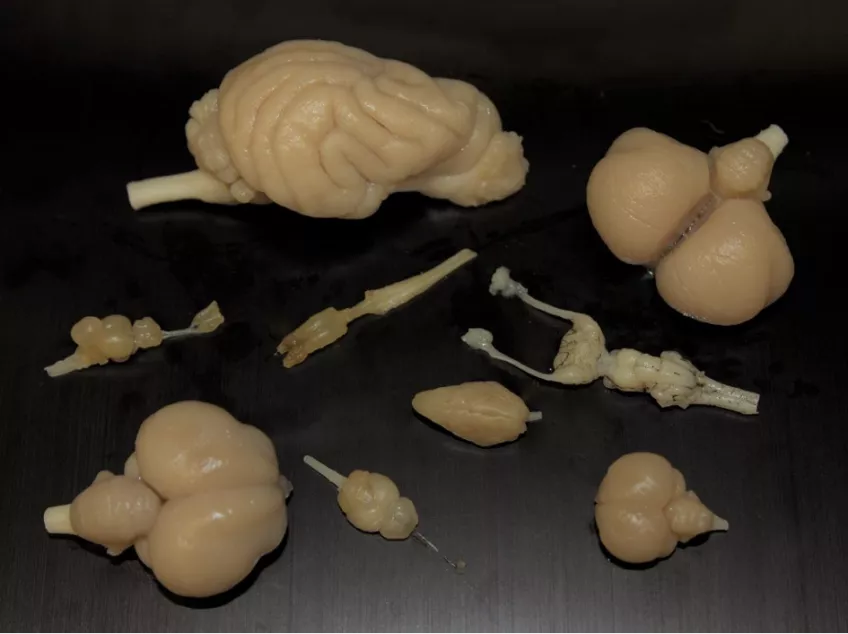Comparative Neuroanatomy
The neuroanatomy team studies the brains of extant reptiles and birds to be able to reconstruct their evolution. Animal brains vary quite a lot in absolute size as well as size relative to the body and exhibit a huge diversity of shapes, but they also vary enormously on the inside and new techniques in neuroscience make it possible to study this hidden variation on a large scale.
We collect brains of animals from all over the world and use novel methods, such as the isotropic fractionator, whole-brain immunostaining, and light-sheet microscopy to determine their processing capacity. We will examine the size and shape as well as the cellular composition of the whole brain and its major parts in about 300 hundred species. In a subset of 70 species, we will look more closely at the distribution of neurons in specific areas of the telencephalon, the brain part that is traditionally associated with cognition. Additionally, in 30 species we will conduct a detailed analysis of cells in circuits that are involved in decision-making and likely especially important for “intelligence”.
This will tell us how many neurons are located in specific brain parts and how densely packed they are, enabling us to establish patterns and rules based on phylogeny and other factors. In combination with data from the behavioral studies and paleontological data, we will be able to see how the internal makeup of the brain correlates with brain size and other morphological features of the brain that are trackable in the fossil record and how it might translate into cognitive abilities.
Contact
Pavel Němec, PI
Charles University
pgnemec [at] natur [dot] cuni [dot] cz


